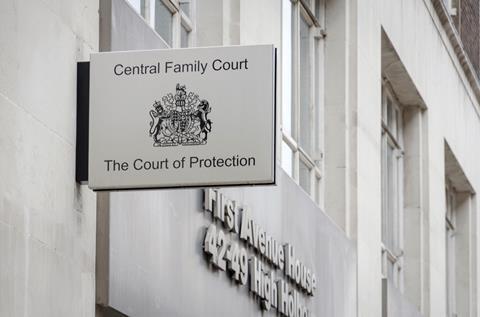It would be lawful for care workers to help an autistic man visit a sex worker, the Court of Protection has decided, in a landmark ruling for people with learning disabilities and mental disorders.
The Honourable Mr Justice Hayden, vice president of the Court of Protection, considered whether carers would be in breach of the Sexual Offences Act 2003 by making practical arrangements for a 27-year-old man with autism – referred to as ‘C’ – to have contact with a sex worker.
The central question was whether a carer who gave such support would be ‘intentionally causing’ or ‘inciting’ C to engage in sexual activity, which is prohibited under Section 39 the Sexual Offences Act 2003.
According to the judgment, C has been diagnosed with Klinefelter syndrome and autistic spectrum disorder. In 2018, he told his Care Act advocate and litigation friend that he wanted to be able to have sex, and wished to know whether he could have contact with a sex worker.

In judgment, Mr Justice Hayden said that ‘it is no longer the objective of the law to prevent people with mental disorders from having sexual relationships, rather it is to criminalise the exploitation and abuse of such adults by those with whom they are in a relationship of trust’.
‘It is important to recognise that those with mental health disorders have, in the past, effectively been prevented, by the law, from engaging in sexual relations. Though this was undoubtedly, historically, motivated by a paternalistic desire to protect them, it had the countervailing consequence of dismantling their autonomy and failing to respect their fundamental human rights.’
He added that C has 'repeated his wishes to his carers consistently and cogently over the course of the last three years.’
Responding to objections posed by justice secretary Robert Buckland, Mr Justice Hayden said: ‘Neither the secretary of state nor I have been charged with the responsibility of resolving the moral and ethical issues that are raised. Those are issues for the individuals themselves. Parliament has recognised that the state should retreat from this sexual arena.’
He added that while it is ‘entirely understandable’ that Buckland ‘would not wish to be seen to act in a way which might be perceived as encouraging prostitution, the fact remains that the act is legal’.
Mr Justice Hayden has granted the justice secretary permission to appeal.
This article is now closed for comment.



























4 Readers' comments